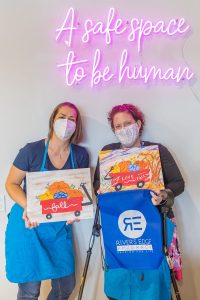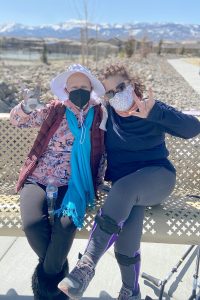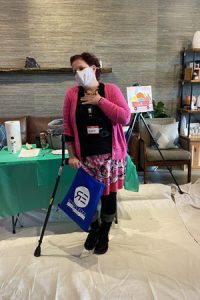Summer Heat and Autoimmune Disease
When someone hears the terms “unprecedented heat wave” or “heat dome”, he/she might begin some preparation. But, what if you have an autoimmune disease?
Much of the west coast has been under heat advisories, or experiencing record-high temperatures, much earlier in the summer this year, and for extended periods of time. Warnings are abundant, advising people to check on the elderly and vulnerable. Heat, alone, is a potential trigger for an autoimmune flare. Extreme heat, however, needs to be considered carefully.

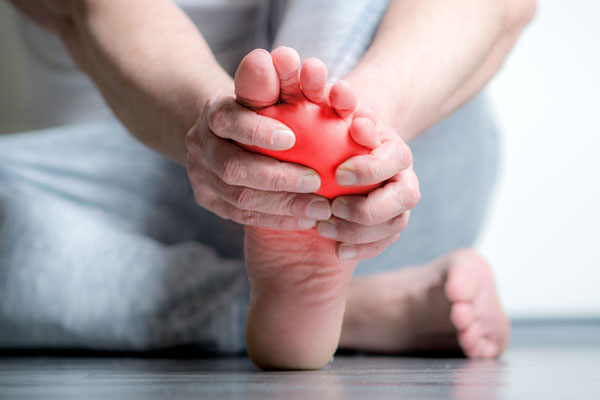
What does this mean? Our body’s natural immune system is designed to attack a foreign invader when it enters the body, such as a virus or bacteria. Essentially, we have a little army which helps us get back to health by fighting flus, colds, and any number of common illnesses.

Many people with autoimmune diseases have a level of heat intolerance. Living in places which are generally warm during the summer may require you to take extra precautions in order to stay cool, or spend the hot days indoors. As a patient, you might have learned how to “beat the heat” if it affects you.
Stress – emotional or physiological – is a major cause of autoimmune disease flare-ups. Extreme heat is physically stressful. Hot temperatures have the potential to disrupt the delicate temperature-regulated balance of the body, especially in neurological autoimmune diseases. It is common to feel overheated beyond normal. Even temperature fluctuations may be intolerable, and subsequently trigger symptoms. Have you ever shivered when it’s hot, and had an increase in sweat when it’s cold?
Specifically, when someone gets too much sun or UV exposure, the skin will turn red, dry out, and new skin is replaced. It can be as noticeable as a sunburn, or so subtle you don’t notice it happened. The process is called “apoptosis” – a normal immune response where cells basically self-destruct in order to create healthy ones.
Heat and sun exposure may result in increased symptoms that last for a few days and will heal naturally. Or treatment may be required. Closely monitor how you feel in hot weather. And keep in contact with your doctor.

According to Rheumatologist Jeffery S. Carlin, MD, this normal immune response can trigger an immune reaction that is “too strong”, causing an autoimmune flare up. He further elaborates that the white blood cells are activated in order to heal sun-exposed skin. This further activates other immune cells in a person with an autoimmune disease – what he equates to “throwing gas on a fire”.
PRACTICAL WAYS YOU CAN MANAGE A HEAT WAVE OR HOT SUMMER DAYS INCLUDE:

Staying Inside
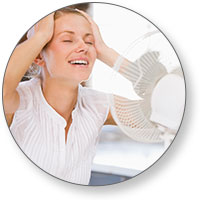
Having a fan or air conditioning available
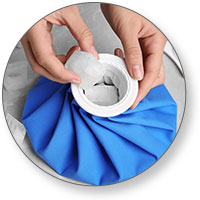
Using ice packs over clothes or wrapped in towels on the body
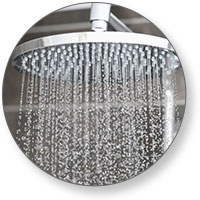
Taking a cool bath or shower
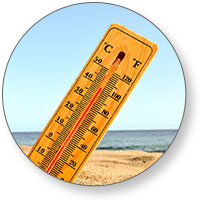
Avoiding the outdoors during the hottest times of day
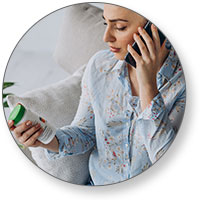
Knowing the side effects of your medications with regard to sun exposure
IF YOU NEED TO GO OUT:
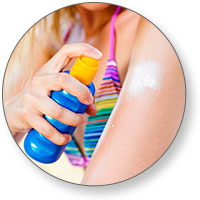
Be sure to wear sunscreen

Take a hat

Dress in cool, lightweight, and breathable clothes which cover your arms and legs
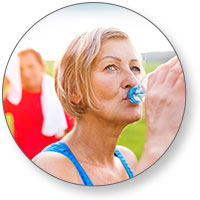
Equip yourself with plenty of cold water
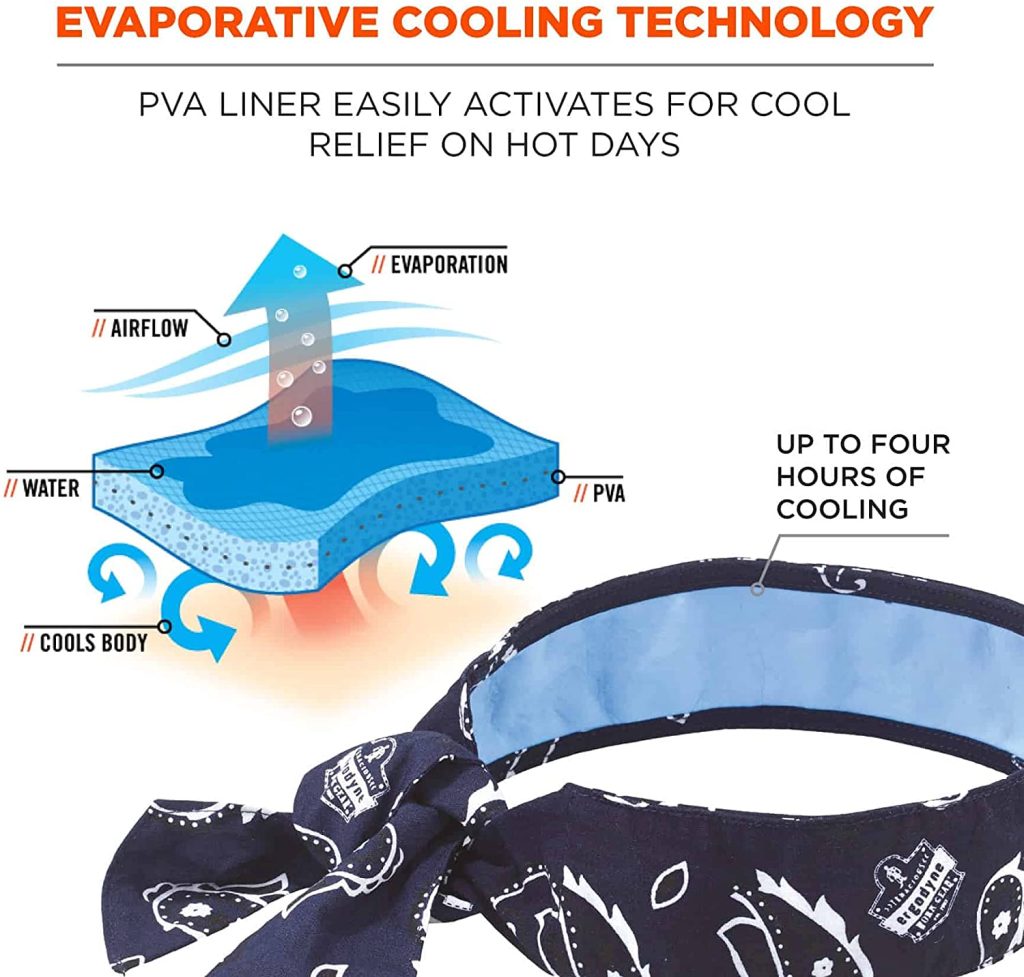
Additionally, inexpensive cooling scarves can be found online. Check out this one on Amazon: Fabrics are available with built-in SPF ratings. If you live in a place which is preparing for an upcoming heatwave, check your city or community website. Many cities offer community “cooling centers”.
Depending on your diagnosis and treatment, your immune system could be compromised, simply by being around people in public places. This exposure to others puts you at risk for catching viruses and/or other common illnesses. So, ask your doctor for guidance on this, and wear a mask if necessary. People with compromised immune systems have been given this guidance prior to COVID-19. If heading to a public place where temperatures may soar and imperil your health, look to family or friends who have cool places where you can wait it out. Many communities are offering fans and other methods to cool down at home as well.

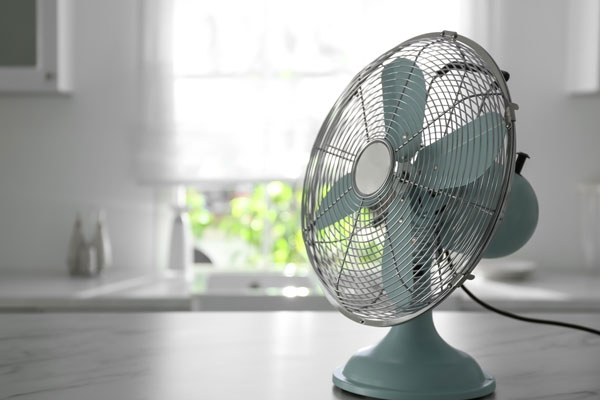
A handful of autoimmune disease foundations will donate cooling vests or other gear to diagnosed patients. If your doctor writes a prescription for a medical-grade cooling vest, your health insurance may cover it. Doctors may write prescriptions for medical in-home cooling devices such as fans or small air conditioning units. While they won’t be reimbursed immediately, you won’t have to pay sales tax on them. They can be deducted as a medical expense on your taxes. Also be aware that heatwaves have the potential to surge energy costs.
Summer doesn’t have to be ruined because of an autoimmune disease. Even record-high temperatures don’t have to set you up for misery. Take advantage of early-morning hours or late evenings to get outside and move around when the temperature is cooler. Maintaining a good exercise regimen that is conducive to your condition is important to manage the heat and help regulate your immune system.

My favorite summer drink to beat the heat is watermelon water. Mix a few chunks of watermelon with some cucumber and mint. Throw it in a blender with some ice, and enjoy how cold, hydrating, and refreshing it can be. Any fruit will work.
If hot temperatures have you feeling down or ill, give yourself plenty of grace. Grab something cold and know you are not alone.
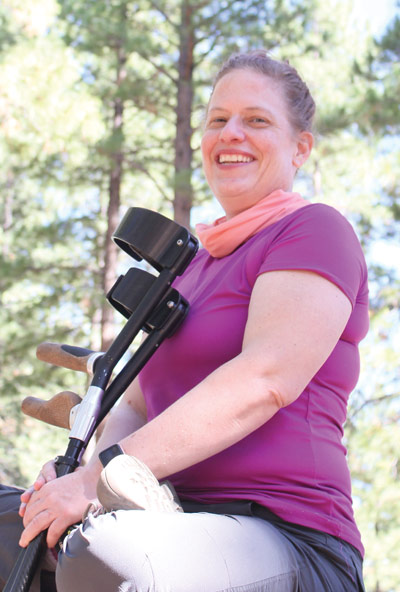
Jennifer “Lizzie” MacDonald leads the PATH – Patient Healthcare and Wellness Program at River’s Edge Pharmacy. As a patient with multiple chronic conditions, Lizzie has first-hand experience with navigating the complex health system.
Throughout her journey, she has become impassioned with sharing her knowledge and serving as an ambassador for patient independence, wellness, and recovery. This not only lead to patients’ relief and comfort, it has provided an opportunity for doctors to utilize a patient advocate for more effective and time-saving care in their practices.
Lizzie is an outspoken supporter of creating community through support groups as well as through the invaluable connection of one-on-one interactions for patients who are managing chronic/complex illnesses. Through her efforts, she has emboldened patients to share their ideas, goals, and triumphs, as well as live life to the fullest, regardless of their condition(s).
Lizzie is also a contributing author to River’s Edge Pharmacy’s News and Articles




